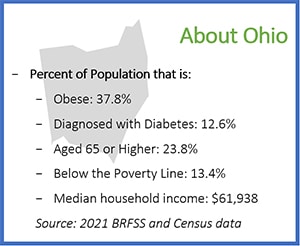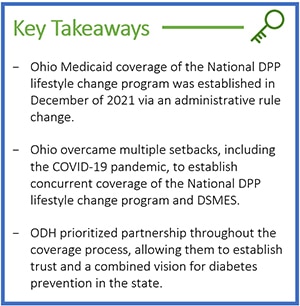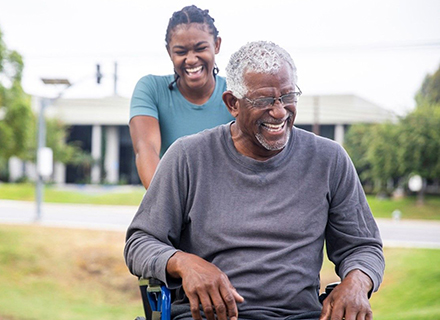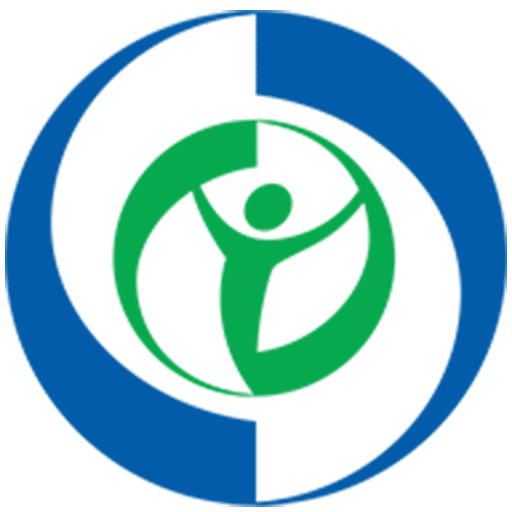Medicaid → State Stories of Medicaid Coverage → Ohio
Ohio’s State Story of Medicaid Coverage
Overview
On December 17, 2021, the Ohio legislature approved a change to Ohio Administrative Code Rule 5160-8-53, establishing Medicaid payment for the National Diabetes Prevention Program (National DPP) lifestyle change program effective January 1, 2022. Colleagues at the Ohio Department of Health (ODH), the Ohio Department of Medicaid (ODM), and the state’s Medicaid managed care organizations (MCOs) are collaborating to operationalize and roll out the communication efforts related to this benefit. ODM and ODH have a history of working together on diabetes prevention, including collaborating on Ohio’s legislatively mandated Ohio Diabetes Action Plan and a 2017 diabetes State Engagement Meeting (StEM).

Establishing Coverage
ODH, ODM, and other state agency partners began collaborating in 2017 to develop Ohio’s first legislatively mandated Ohio Diabetes Action Plan (DAP). In July 2017, ODH held a diabetes StEM to coordinate with key contributors to address diabetes prevention in Ohio. Following the StEM, interviews were conducted with four large payer organizations in Ohio, including two Medicaid MCOs, about coverage of the National DPP lifestyle change program. Based on these interactions with ODM and the MCOs, ODH decided to pursue a Medicaid MCO pilot of the National DPP lifestyle change program, using CDC’s 1815 funds. A state supported MCO pilot would give ODH an opportunity to collect effectiveness data for the state Medicaid agency, and to test out administrative processes and delivery of the National DPP lifestyle change program to Medicaid beneficiaries in Ohio. After sharing information and resources with five Ohio MCOs, two MCOs elected to pilot the program with their Medicaid members. However, neither pilot project came to fruition. The MCOs’ priorities shifted due to the COVID-19 pandemic, staff capacity, and implementation of a quality withhold project focused on diabetes management.
Although the pilot projects were not implemented as planned, ODH continued to partner with ODM on the DAP, which included recommendations around coverage of the National DPP lifestyle change program for Medicaid members. ODH also continued speaking with the MCOs about the program and provided support to the MCOs’ diabetes management quality withhold work.
ODM filed an administrative rule change on October 1, 2021 to set forth coverage and payment provisions for diabetes prevention and self-management training services. A public hearing was held on November 1, 2021, and the rule was approved on December 17, 2021. As a result of the administrative rule change, all MCOs are now required to cover National DPP lifestyle change program for their members. The administrative rule is accompanied by a Medicaid Transmittal Letter that outlines the details of the benefit. These details are summarized below:
- Payment is established for National DPP lifestyle change program services rendered or supervised by physicians, advanced practice registered nurses, and physician assistants.
- Payment is allowable for in-person and online National DPP lifestyle change program services. In-person services are billed in one-hour sessions and have a lifetime maximum of fifty-two sessions. Online services are billed monthly and have a lifetime maximum of 24 months.
- Payment for National DPP lifestyle change program services can be made when all the following criteria are met:
-
The individual is 18 years or older; and
-
The individual is overweight; and
-
The individual is not currently pregnant; and
-
The individuals does not have a diagnosis of type 1 or type 2 diabetes; and
-
At least one of the following criteria is met:
-
The individual has been diagnosed with prediabetes; or
-
The individual has a history of gestational diabetes; or
-
The individual has had a high-risk result on a prediabetes test.
-
-

In 2021, ODH and ODM began participating in the CDC-funded and NACDD-led Building the Case for Medicaid Coverage technical assistance opportunity which supports the development of partnerships between public health and Medicaid in pursuit of Medicaid coverage for the National DPP lifestyle change program. Involvement in this initiative supported ODH and ODM in developing a plan for operationalizing and sustaining their National DPP lifestyle change program benefit after it became effective on January 1, 2022.
ODH and ODM continue to collaborate around diabetes prevention and management, specifically regarding the operationalization of the National DPP lifestyle change program and Diabetes Self-Management Education and Support (DSMES) services covered for Medicaid beneficiaries under the new rule. To learn more about administrative rule changes and how a state’s legislature can support Medicaid coverage for the National DPP lifestyle change program, please visit The Role of the State Legislature in Medicaid Coverage page of the Coverage Toolkit.
Implementing Coverage
ODM decided on a fee-for-service reimbursement model for their National DPP lifestyle change program benefit that does not tie payment to participant weight loss. MCOs can negotiate the reimbursement amounts based on the agency’s individual provider contract with the plan. To learn more about ODM’s reimbursement model, please see the Reimbursement Models in Practice section of the Reimbursement page of the Coverage Toolkit.
Since the administrative rule change that established coverage, a collaborative team made up of ODH staff, three MCOs, and three CDC-recognized organizations has participated in the CDC-funded and NACDD-led Medicaid Beneficiary Enrollment Project (2022 – 2023) to operationalize coverage. Their goals are to facilitate CDC-recognized organizations enrolling as Medicaid providers, ensure that CDC-recognized organizations have the appropriate billing systems, and test workflows that will allow for identification and referrals of eligible Medicaid members.
Benefit Breakdown
Below is an overview of New York State’s Medicaid benefit:
| Delivery Methods | In person and online. |
| Lifestyle Coaches | Non-licensed lifestyle coaches are eligible to provide the National DPP lifestyle change program, as long as they are supervised by a physician, physician assistant, or advanced practice registered nurse. |
| Medicaid Enrolled Provider Eligibility |
Both billing and rendering providers are required to enroll as a Medicaid provider in Ohio. Physicians, physicians’ assistants, and advanced practice registered nurses may render or supervise program delivery. Physicians, physicians’ assistants, advanced practice registered nurses, professional medical groups, federally qualified health centers (FQHCs), rural health clinics, or ambulatory health care clinics may receive Medicaid payment for submitting a claim for the National DPP lifestyle change program on behalf of a rendering provider. |
| Accepted CDC Recognition Levels | Providers are expected to follow CDC guidance which allows organizations that have received full plus, full, pending, or preliminary recognition from the CDC Diabetes Prevention Recognition Program (DPRP) to deliver the program. |
| Program Duration | Maximum program duration is 2 years/24 months. |
| Program Repeatability | In-person services have a lifetime maximum of 52 sessions. Online services have a lifetime maximum of 24 months. |
| Reimbursement, Coding, and Billing | In-person services are billed in one-hour sessions at a rate of $23 per session. The standard reimbursement the CDC-recognized organization would receive for in-person delivery over a two-year period is $920, and over a one-year period it is $644. Online services are billed monthly at a rate of $49 per month. For online delivery, maximum reimbursement over a two-year period is $1,176, and over a one-year period is $588. |
Program Features Unique to Ohio
Synchronized Coverage of DSMES
The administrative rule that established coverage for the National DPP lifestyle change program concurrently established coverage for DSMES. The combined effort and momentum to achieve coverage for both diabetes prevention and management created efficiencies in the coverage and implementation process.
In 2020, prior to the administrative rule change, all MCOs in Ohio were covering DSMES as a value-added service. However, none were covering the National DPP lifestyle change program under this mechanism. To support MCOs, ODH provided resources to allow MCOs to share information about this offering with the FQHCs participating in ODH’s Diabetes and Hypertension Quality Improvement Project. Although not National DPP-related, it has given ODH important insight into how they can improve the path to coverage for the National DPP lifestyle change program for Medicaid beneficiaries and strengthened their relationship with MCOs.
Lessons Learned
The ODH team involved in pursuing coverage offered the following lessons learned related to their pathway to coverage of the National DPP lifestyle change program in Ohio Medicaid:
- Persistence is key to achieving Medicaid coverage of the National DPP lifestyle change program. Over the years, ODH invested time into fostering relationships with ODM and all Ohio MCOs. It is beneficial if all partners are aligned on the ultimate goals related to coverage and can present a united front.
- Time was well spent finding the correct person to answer specific questions about establishing the benefit. In addition to participation by ODH, ODM, and all Ohio MCOs, Ohio’s path benefited from input from representatives that are informed about provider enrollment and engagement, quality improvement, care management, policy decisions, and other aspects important to implementation.
- Public health staff can serve as subject matter experts on the National DPP lifestyle change program and when they are included in the decision-making process, they can play a pivotal role in designing and implementing the program as a benefit.
- The ODH team paid close attention to MCO procurement in the state and used its timing to their benefit. When two new MCOs were added in the Summer of 2022, the ODH team saw an opportunity for all partners to come together to learn more about the National DPP lifestyle change program and advance their collaboration towards coverage.









